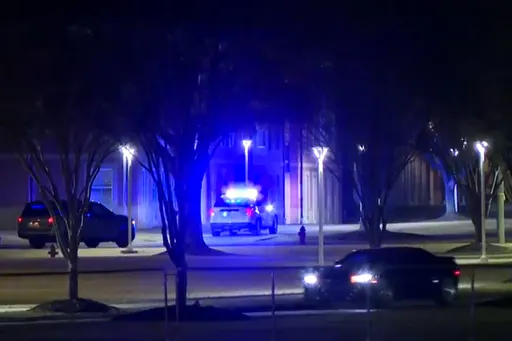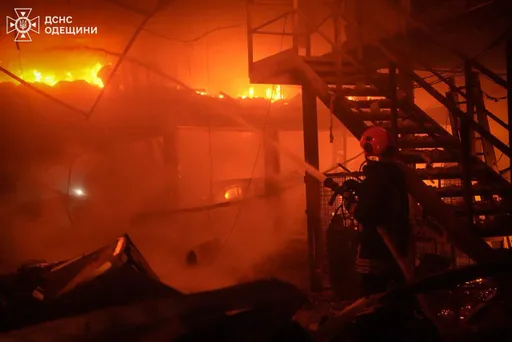More than a half million registered Syrian refugees have been verified in Turkey this year under a joint project between Turkey and the United Nations.
The project is funded by the European Union, under a refugee deal signed by the EU and Turkey in March 2016. The deal proposed €6 billion ($7 billion) in aid to Turkey for refugees projects.
By the end of 2016, Turkey was hosting around 2.7 million refugees, but recently that number has increased to around 3.3 million. Most of the new influx of refugees came from Syria, though none of them were from Turkey's southern border.
Turkey’s Directorate General of Migration Management (DGMM) launched a verification exercise more than a year ago with the United Nations Refugee Agency (UNHCR) to update the data collected on refugees.
The UN says more than 529,000 Syrians have been verified in 57 of Turkey’s 81 provinces since October 2016.
Of the new non-Syrians registered, 71,233 of them are from Afghanistan, Iraq, Iran and Somalia.
The European Union's Commission Humanitarian Aid Office (ECHO) is funding the program, Jane Lewis, the head of ECHO in Turkey, told TRT World.
“Verification Exercises for Syrians entering Turkey began in October 2016. Turkey’s Directorate General of Migration Management (DGMM) and the United Nations Refugee Agency (UNHCR) have spent a long time collaborating on efforts to set up the system. The program aims to ensure that millions of Syrian refugees living in the country are still registered and their basic information is up to date,” said Lewis.
The Disaster and Emergency Management Presidency of Turkey (AFAD), the Turkish Red Crescent and DGMM are collaborating on the verification process.
The purpose of the procedures
The aim of the verification and the DGMM-UNHCR joint registration process is to expand data sharing and to ultimately shift authority to the DGMM.
The verification process is meant to identify and respond to the needs and vulnerabilities of the refugees. Administrators collect biometric data, contact information, and detailed background information, including occupation, education and changes in family status, such as a new birth, death or marriage.
The verification exercise, which is the third largest humanitarian project funded by ECHO in Turkey, will allow Turkish authorities to update all data on Syrian refugees.
"The entire process has costed €20 million ($23 million) for the time being, but we are deciding whether or not to provide additional funding to expand and support the programme," Lewis explains.
The first two major projects are the Facility is the Emergency Social Safety Net (ESSN) and the Conditional Cash Transfer for Education (CCTE).
ESSN — along with the Turkish Red Crescent and Turkish government institutions — has spent $408 million (€348 million) to distribute electronic debit cards to refugee families. The cards are used to make direct payments to the families.
And CCTE is making bi-monthly cash transfers worth nearly $39 million (€34 million) to refugee families whose children are attending school regularly.
How does the system work?
“The DGMM has established verification centres across the country, requiring Syrians to register at these locations. They are then given new identification cards,” explained Lewis.
The refugees were already issued cards by Turkish Red Crescent to visit the hospital and obtain free health services. They also have access to public services in Turkey, including educational services.
However, according to ECHO, many refugees face challenges in accessing these basic facilities because of registration problems and language barriers.
The new identification cards hope to resolve these problems and better meet the needs of the refugees.
Turkey hosts the largest number of Syrian refugees
Praising Turkey for hosting the largest number of Syrian refugees, Lewis said that international community needs to step up its support, both inside Syria and for the host countries supporting millions of refugees. Turkey agrees that the international community has not done enough.
“At the moment, we are working on a €3 billion ($3.5 billion) package for the refugees. The European Union Commission Humanitarian Aid Office is managing €1.4 billion ($1.6 billion) of the total package,” Lewis said.
Part of the reason that Turkey and the EU signed the deal in March last year was to crack down on human trafficking and stem the flow of refugees coming through the Aegean Sea.
The deal allows for Turkey to re-admit such illegal refugees after they go through the verification process, and send the same number of refugees to European countries.
In return, the EU agreed to ease visa restrictions for Turkish citizens and move forward on Turkey's bid to join the European Union.
The deal had also stated that the EU would give Turkey $7 billion (€6 billion) to help improve refugee conditions.
But Turkish authorities say that the EU paid only around $938 million (€800 million) in financial aid, and the easing of visa restrictions never took effect.
Mehmet Gulluoglu, the head of AFAD, also criticised the EU for “the slow flow of the pledged fund.”
“The money is coming, but slowly. More than €800 million ($938 million) came and was distributed between institutions, but it is slower than what we are expecting,” Gulluoglu said.
According to data collected by ECHO, less than 10 percent of Syrian refugees — around 245,000 — live in 23 camps across the southern provinces of Turkey.
More than 90 percent — nearly three million — live in cities and urban areas, despite government efforts to keep them in the camps.
Despite Turkey's preference for refugees to stay at the camps, the government has not forced them to do so.
“Turkey didn’t follow the policy to put all refugees into camps and that’s why in 2014 it stopped building new ones,” said Gulluoglu.
“We are also aware that more than 90 percent of Syrian refugees live in the cities. In the camps, they don’t pay rent and they don’t pay any bills, but they are in limited areas. Whatever conditions you serve, it is a camp,” he said, explaining why refugees don’t chose to stay there.
Turkish officials say that Ankara has also spent more than $25 billion of its own resources on refugees in the country.























